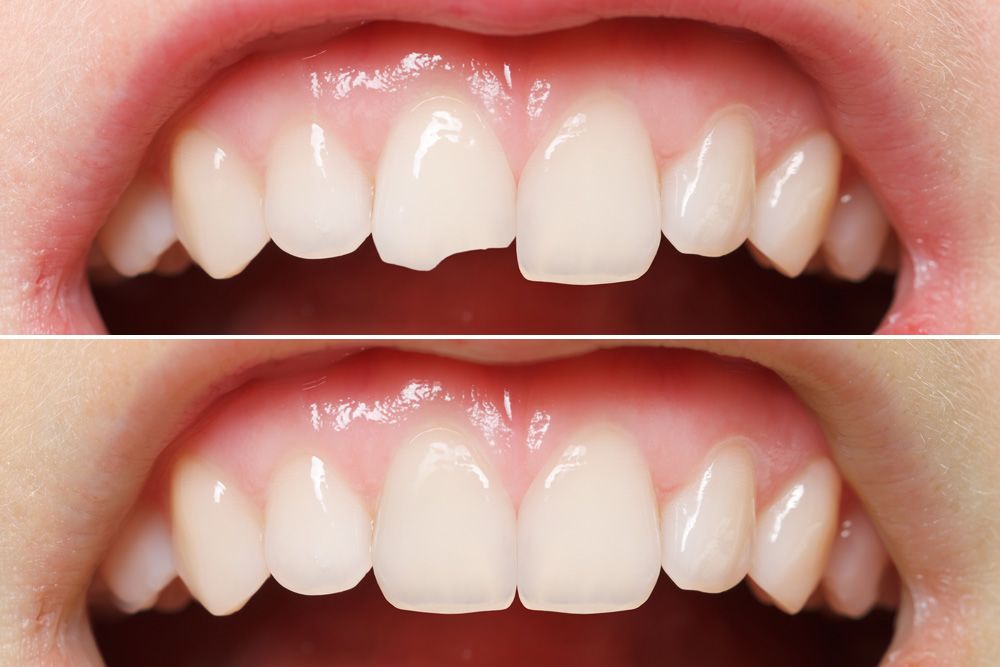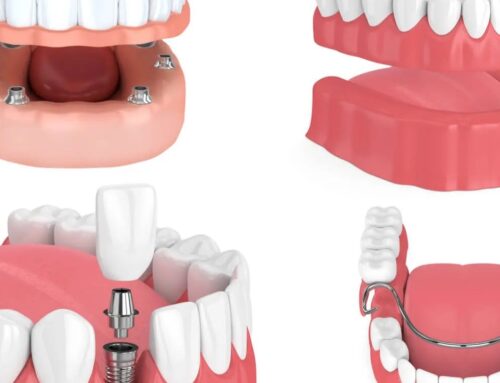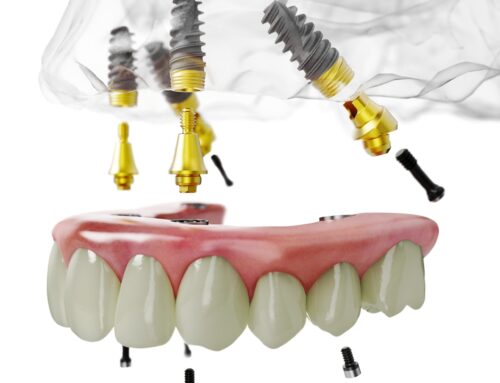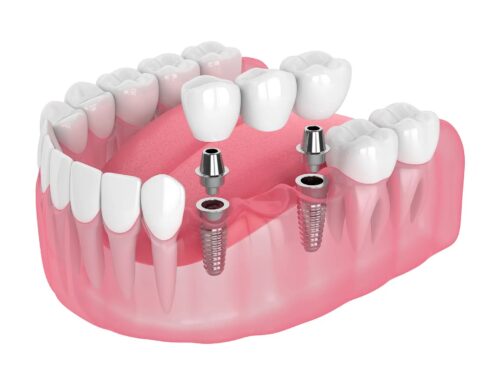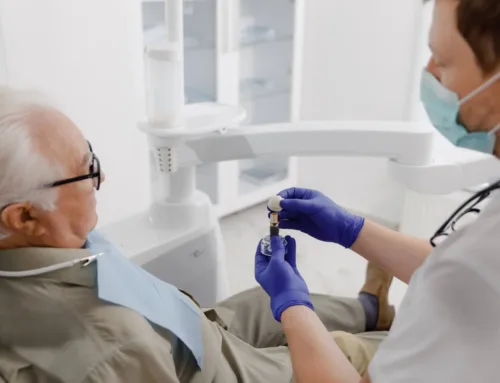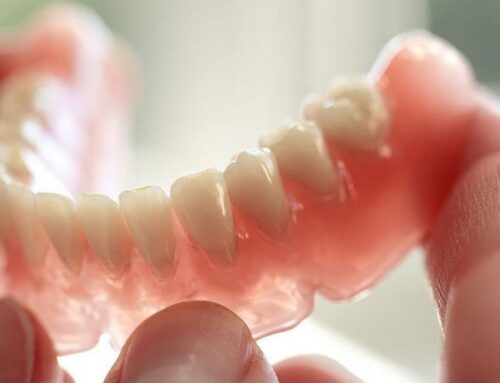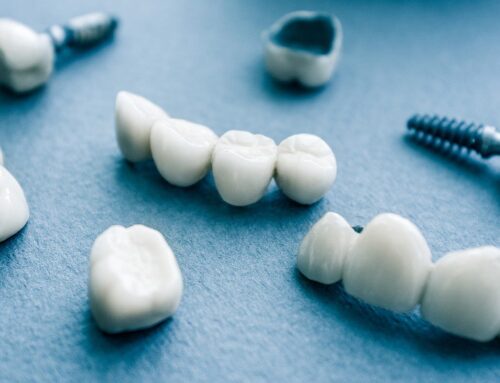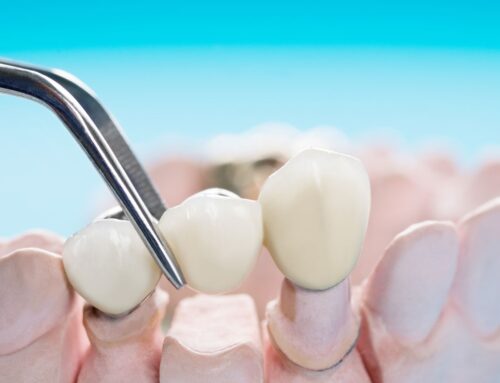Repair Your Smile – Dental Implants, Bonding, Bridges & Crowns
Missing or damaged teeth can be stressful and present a ton of health challenges. Even one damaged tooth can impact biting, chewing, swallowing or speaking. It’s important to rectify the matter immediately, which means a visit to the dentist to undergo a procedure of some sort.
The question, though, is what procedure is best for you? The common ones include implants, bonding, crowns or bridges, but, ultimately, the decision is determined on a case-by-case basis, keeping in mind what’s best for the patient and their unique situation.
To help you make an informed decision, we’ll first look at the risks and health concerns associated with missing or damaged teeth. We’ll then explore each option and the different situations where one might make more sense than the others. The aim is to make sure you have all the information you need to start the process.
Missing, Damaged & Broken Teeth
Suffering from damaged or missing teeth can impede one’s oral health and daily life. This is often the result of an injury or trauma to the face. People can also encounter situations where teeth must be removed due to gingivitis or periodontist. For adults, tooth loss can be an emergency that requires urgent care.
Missing teeth are commonly caused by:
- Diabetes, especially Type 2
- Tobacco
- Genetics
- Poor dietary habits
- Unaligned teeth
- Defective fillings
Some ways to prevent tooth loss are to avoid smoking, wear a mouth guard when playing contact sports, attend regular dental checkups and brush and floss twice a day.
In addition to difficulty eating, chewing, swallowing and biting, tooth loss can also cause:
- Pain
- Intense sensitivity
- Gaps if teeth shift
- A weakening of your mouth’s structure
- In some cases, more teeth can loosen
Once a tooth has been lost or is damaged, a patient must work with their dentist to choose a course of action. Dentures have always been treated as a last resort by dentists and a negative diagnosis by patients. The issue with dentures is that they often don’t fit properly leading to discomfort and other complications. Luckily, options to replace missing teeth have evolved to the point where dentures are not the only solution.
The benefits of a dental implant, include:
- Consistent comfort
- Enhance speech
- A more pleasing appearance
- Ability to chew crunchy food
- An increase in oral health
- Greater protection for jaw and teeth
- Reduced risk of bone loss
- Easy to clean
- Hold dental bridges and crowns in place
- Can prevent the loss of other teeth
If you even chip a tooth, you should immediately book an appointment with your dentist to have it inspected.
Dental Bonding
Dental bonding repairs teeth that are chipped, discoloured or crooked and is a suitable replacement for mercury fillings. They work by placing a white filling onto a tooth or between teeth. Over time, this filling bonds with the tooth and can improve the look of teeth. It achieves this by being available in a variety of shades that closely match the natural colour of teeth.
Bonding can be used on front and back teeth but is dependent on the severity of tooth decay.
Treatment can usually be completed in only one appointment. Furthermore, if bonding breaks or chips, it can be easily repaired. The one thing that patients should remember is that it is susceptible to staining much like natural teeth.
If performed properly, quality bonding’s can last several decades.
Dental Crowns
Dental crowns are designed to restore a tooth’s shape or to make a tooth stronger and more resilient. Crowns are recommended for cases involving a broken or worn down teeth or if a portion of a tooth has deteriorated due to decay. A dentist might recommend a crown over other implants to protect weaker teeth from breaking or to restore a cracked tooth.
A crown is like a cap that is cemented onto a tooth to cover the portion that resides above the gum line. Think of it as replacing a tooth’s outer surface. Traditionally, crowns are made of porcelain, metal or a combination of the two. Porcelain tends to be the most popular because they have the same translucency of natural teeth and the strength to last.
In cases where a tooth lacks sufficient strength to hold a filling, a dentist might recommend a partial crown. This differs from traditional fillings because it is created in a lab from an impression of your mouth. A dental laboratory technician examines the aspects of jaw movements, including biting, and then sculpts a custom onlay to ensure you can use that tooth in the same way prior to incurring damage or decay.
Dental Implants
Many dentists believe that dental implants are the best way to replace missing teeth. They are often recommended due to their comfort and their ability to support other procedures like dentures. One significant benefit of implants is that they will not damage surrounding teeth.
Once a patient chooses dental implants to treat their missing or damaged teeth, X-Rays will be taken of their jaw. These X-Rays will be used in conjunction with software to ensure the implant will be inserted into the appropriate location. The actual surgery will then be scheduled.
This procedure involves surgically attaching a special titanium screw into the patient’s jawbone. The replacement teeth are then mounted onto this screw. One benefit of this treatment is that implants will not shift or disrupt everyday mouth functions in any way.
Implants look and feel natural and most patients are eligible for the procedure if they have an adequate jaw and gums strong enough to support the weight of the implant. It’s important to remember that an implant needs to be cared for the same way you would a natural tooth, this includes regular professional cleanings, brushing and flossing. The last thing you want is to get food stuck in the spaces between teeth. Since implants aren’t connected to gums, you could be prone to infection.
The biggest drawback to dental implants is cost, which is driven by the number of implants required.
All-On-4 Implants
All-On-4 implants is a revolution implant system that is only offered by Georgian Dental®. By offering quality and functionality equal to natural teeth, patients can enjoy their favourite foods even those that are crispy or crunchy.
With these implants, a dentist can replace a full set of teeth in an efficient manner via a relatively simple procedure. It customizes and places four implants that act as anchors for replacement teeth, ensuring they are kept securely in place.
Prior to undergoing the procedure, a dentist will perform a dental examination complete with a preoperative medical workup. This can include an electrocardiogram and baseline bloods. Photographs will also be taken of your jaws and teeth to give the technician enough information to design the mould.
The surgery requires general or local anesthetic and takes roughly 90 minutes if only one of the upper or lower jaw is being treated. Each patient is provided customized post-care instructions and must adopt a soft diet for three months. Lastly, dental exams and cleanings are required every six to 12 months.
Book an Appointment Today!
If you need a tooth to be replaced or repaired, your dentist can determine the best course of action. As you’ve learned, there are several options but only one that is right for you.
No matter what type of repair your smile needs, Georgian Dental® is ready to help you get your smile in style. Book an appointment today and get started!
Appointment Request
If you’re interested in any of our procedures, and would like to meet with one of our dentists to discuss options, costs and get additional information, complete this short form and we’ll give you a call to arrange for a no-obligation appointment at our Barrie clinic.
